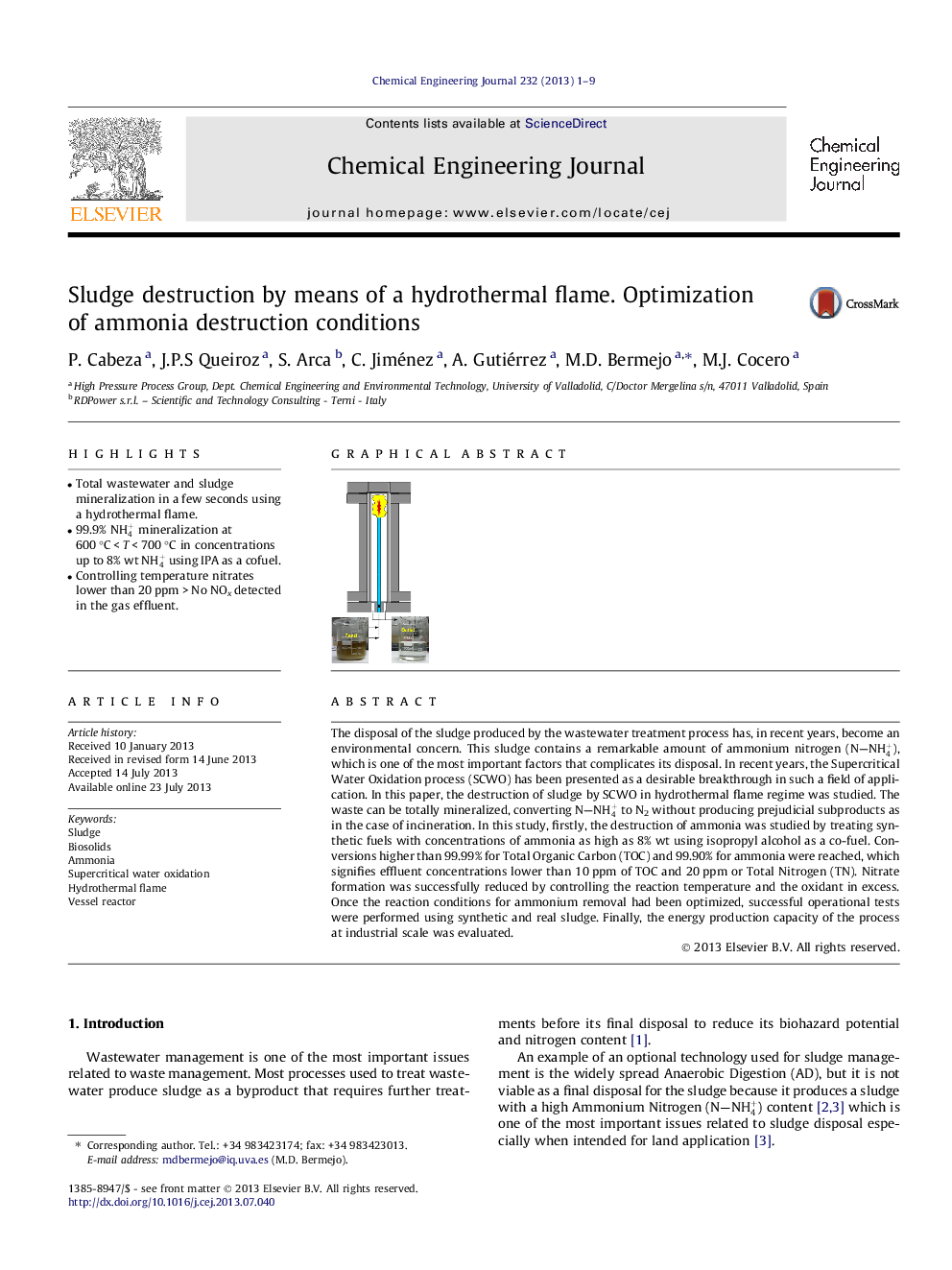| Article ID | Journal | Published Year | Pages | File Type |
|---|---|---|---|---|
| 148120 | Chemical Engineering Journal | 2013 | 9 Pages |
•Total wastewater and sludge mineralization in a few seconds using a hydrothermal flame.•99.9% NH4+ mineralization at 600 °C < T < 700 °C in concentrations up to 8% wt NH4+ using IPA as a cofuel.•Controlling temperature nitrates lower than 20 ppm > No NOx detected in the gas effluent.
The disposal of the sludge produced by the wastewater treatment process has, in recent years, become an environmental concern. This sludge contains a remarkable amount of ammonium nitrogen (N–NH4+), which is one of the most important factors that complicates its disposal. In recent years, the Supercritical Water Oxidation process (SCWO) has been presented as a desirable breakthrough in such a field of application. In this paper, the destruction of sludge by SCWO in hydrothermal flame regime was studied. The waste can be totally mineralized, converting N–NH4+ to N2 without producing prejudicial subproducts as in the case of incineration. In this study, firstly, the destruction of ammonia was studied by treating synthetic fuels with concentrations of ammonia as high as 8% wt using isopropyl alcohol as a co-fuel. Conversions higher than 99.99% for Total Organic Carbon (TOC) and 99.90% for ammonia were reached, which signifies effluent concentrations lower than 10 ppm of TOC and 20 ppm or Total Nitrogen (TN). Nitrate formation was successfully reduced by controlling the reaction temperature and the oxidant in excess. Once the reaction conditions for ammonium removal had been optimized, successful operational tests were performed using synthetic and real sludge. Finally, the energy production capacity of the process at industrial scale was evaluated.
Graphical abstractFigure optionsDownload full-size imageDownload as PowerPoint slide
